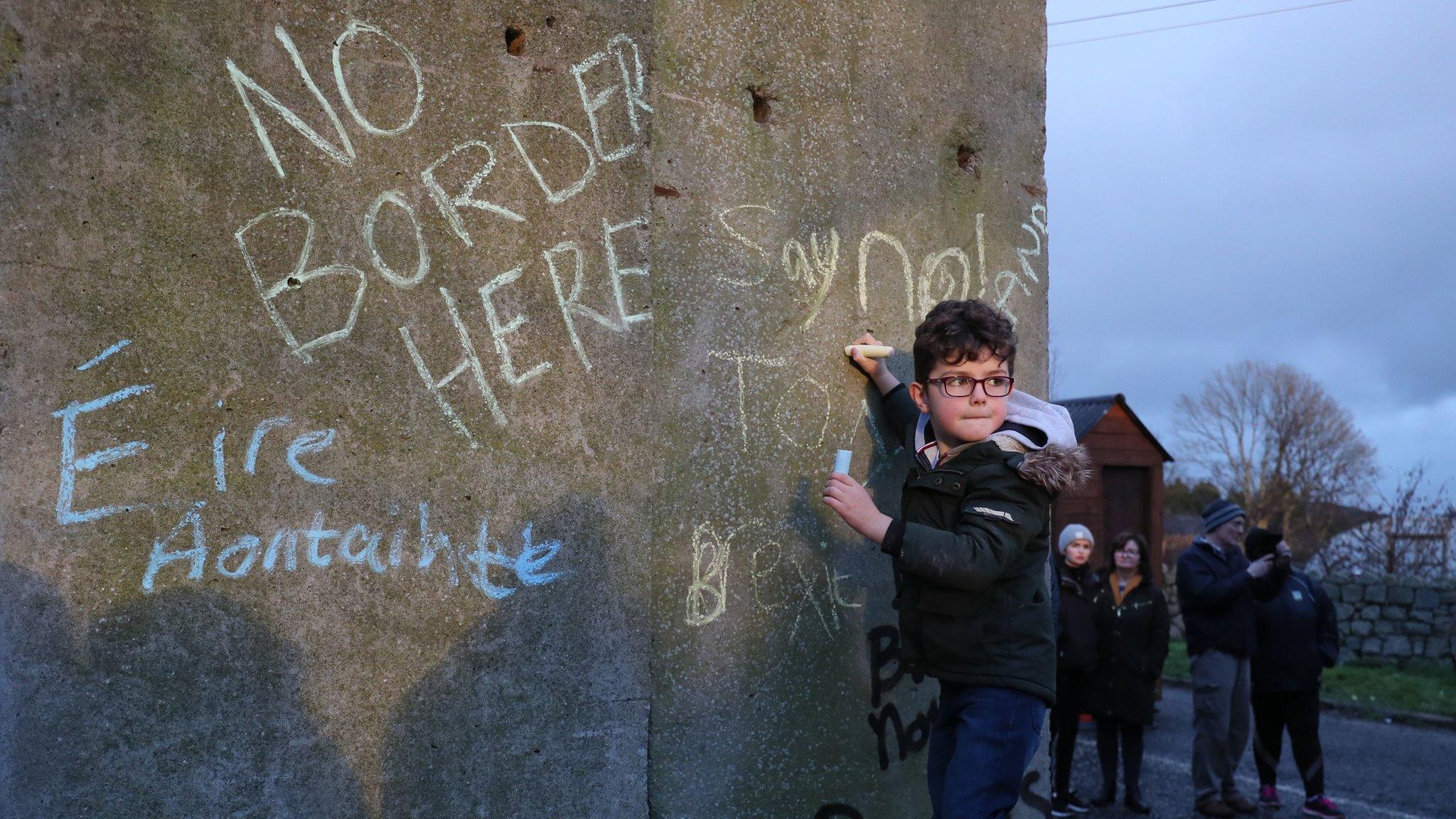Coveney warns Brexit deal bid is 'running out of road'
- Published
- comments
Border more important than 'economic relationships'
The UK and EU are "running out of road" in their bid to secure a Brexit deal, the Irish foreign minister has warned.
Simon Coveney said some things were "more important than economic relationships" and preventing a hard border in Ireland was one of them.
He added that the Irish government was "not going to allow" a return to the borders of the past after MPs voted to seek changes to the backstop.
The backstop is a clause in the Brexit deal to maintain an open Irish border.
British Prime Minister Theresa May agreed to the backstop during negotiations with the EU but has not been able to convince enough Westminster MPs to back the EU withdrawal deal.
On Tuesday, the House of Commons voted for Mrs May to go back to the EU and re-open negotiations in order to secure a "legally binding change" to the backstop.
But Jean-Claude Juncker, president of the European Commission, has said the EU will not abandon the backstop, adding: "Ireland's border is Europe's border, and it's our union's priority."
Reality Check unpacks the basics of the backstop.
What has the Irish government response been?
Taoiseach (Irish Prime Minister) Leo Varadkar spoke to Mrs May by phone on Wednesday and a statement released on his behalf said he "set out once again the unchanged Irish and EU position on the withdrawal agreement and the backstop".
The statement added that the latest developments "reinforced the need for a backstop which is legally robust and workable in practice" and said the two leaders "agreed to stay in touch over the coming period".
Earlier, at an Institute of International and European Affairs event in Dublin, Mr Coveney said: "We are, quite simply, running out of road.
"As Donald Tusk was quick to spell out last night within minutes of the vote, and as had been indicated to the British government numerous times prior to the vote, the withdrawal agreement, including the protocol on Ireland and Northern Ireland, is not open for re-negotiation."
"It is vitally important that politicians in Westminster understand the overwhelming wish across society in Northern Ireland not to return to the borders and division of times past.
"Anybody who allows that to happen, will be judged harshly in history and rightly so. This government in Dublin is not going to allow it."
Mr Coveney also said he would meet the Northern Ireland Secretary Karen Bradley on Wednesday evening.
What has the UK prime minister been saying?
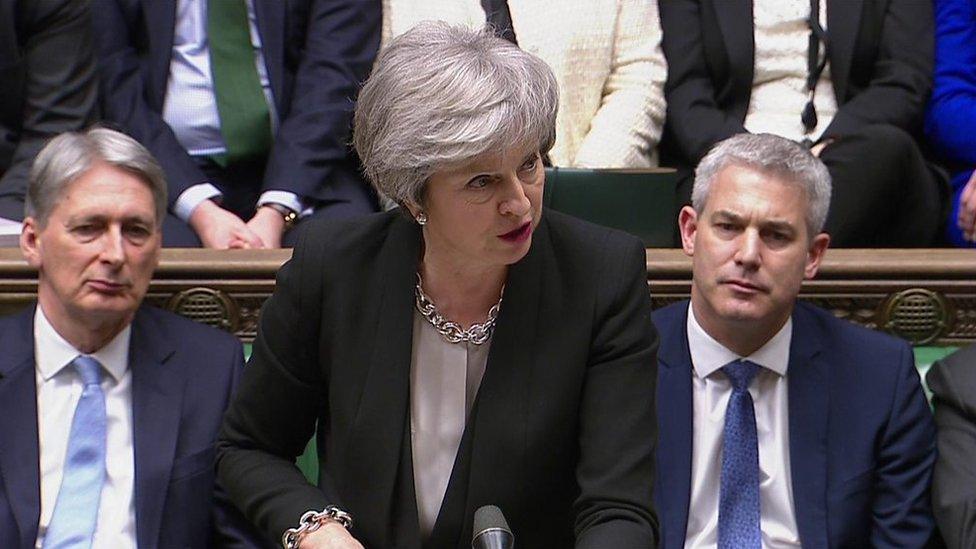
Theresa May told Prime Minister's Questions on Wednesday that her government is considering a number of options
Mrs May has said she stands "fully behind" the Good Friday Agreement, after being accused of ripping it up over Brexit.
The SNP accused the Tories of tearing up the deal ending decades of violence in NI, by voting for the UK to seek alternative arrangements to the border backstop.
But Mrs May said everything she did would be in line with her government's commitments to the 1998 peace accord.
She told Prime Minister's Questions on Wednesday that the government is considering a number of options.
The UK government agreed to a backstop in the draft withdrawal deal with the EU in November 2018 that would take effect at the end of the transition period in December 2020 if another solution has not been found by then.
Those who reject the backstop fear it will not just be a temporary measure if no future trade deal is agreed, but could result in the UK staying in the EU customs union permanently.
Mr Coveney, who is also tánaiste (Irish deputy prime minister) said Tuesday's vote in London in favour of alternative arrangements to the backstop was "disappointing".
'Jumping out the window'
He insisted the Irish government would not allow any renegotiation of the backstop, and said that up until three days ago, Mrs May had been a "defender of the backstop".
"There is a wing in the Tory party, who in my view, want a different Brexit and she is having to accommodate those people by taking a tougher line and fundamentally undermining her own position," Mr Coveney told Irish broadcaster RTÉ.
"Surely the responsible thing for the Irish government to do is to hold the British government to its word."
He also likened the current approach from the UK as "either you give me what I want or I'm jumping out the window".
What have other EU leaders said?
BBC News NI's political reporter Jayne McCormack explains why the border is an issue
Various EU leaders have suggested there will be no revisions to the deal, with European Council President Donald Tusk saying: "The backstop is part of the withdrawal agreement, and the withdrawal agreement is not open for renegotiation."
BBC Brussels reporter Adam Fleming said Theresa May and Donald Tusk had a 45-minute call on Wednesday evening that has been described as "open and frank".
She is not now expected to visit Brussels in the coming days.
French President Emmanuel Macron also said the agreement was "not renegotiable".
Mr Tusk added the EU would, however, be willing to look at the political declaration again - the part of the deal that makes a pledge on the future relationship between the UK and the EU - and that the EU would "stand ready" to consider any "reasoned request" for an extension to the leave date of 29 March.
BBC Europe editor Katya Adler said there were "no cracks" in EU unity, with its leaders united with Ireland and they do not want to "give up" the backstop.
What happens next?
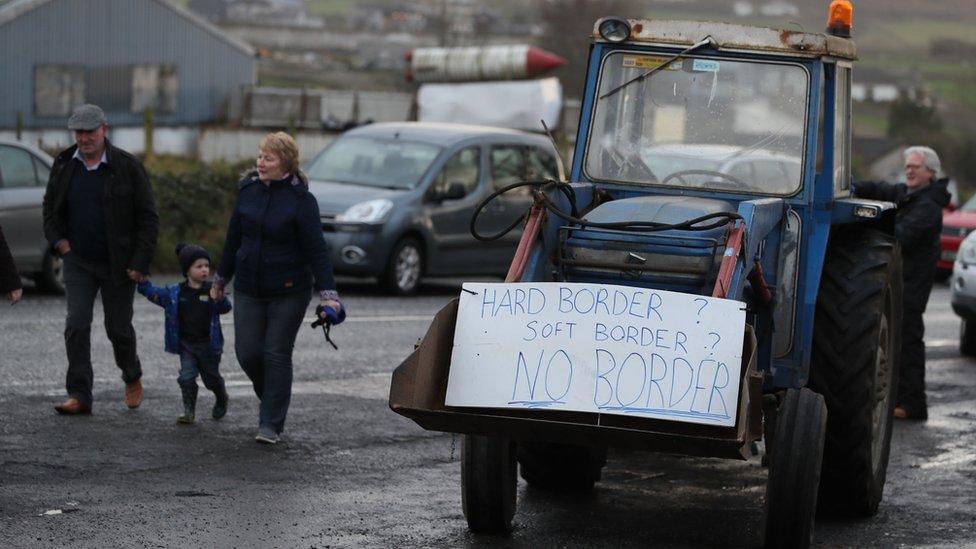
The Irish border has been one of the biggest sticking points during Brexit negotiations
At the moment, the UK is due to leave the European Union at 23:00 GMT on 29 March, with or without a deal.
Mrs May has said she wants to work with the Irish government and EU to get a deal that works for the whole of the UK.
Her revised deal will return to the Commons to be voted on next month.
But, if it is again rejected, the government will table an amendable motion - meaning MPs can put forward more amendments as they did earlier - for debate the following day.
And if no new deal is agreed by Parliament by 13 February, she will make a statement and, again, table an amendable motion for debate the next day.
- Published30 January 2019
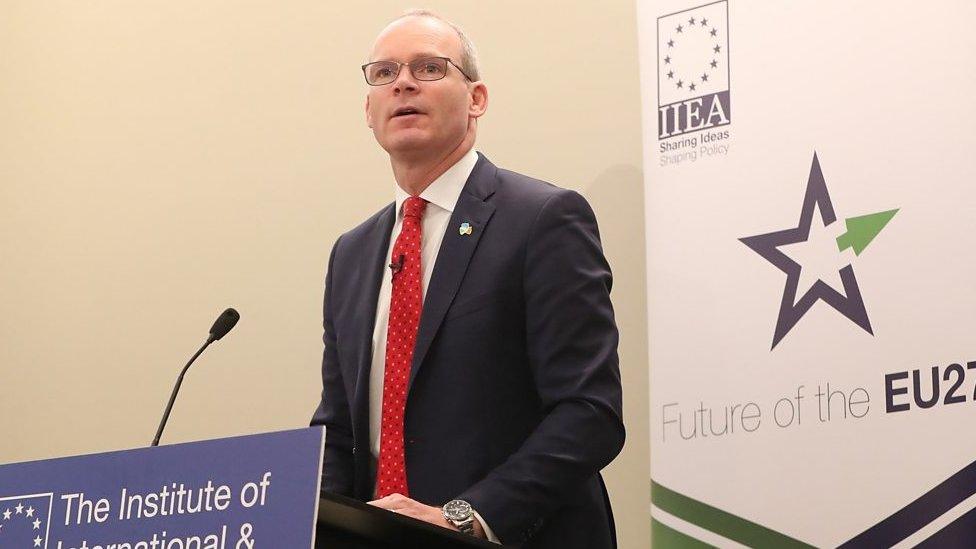
- Published30 January 2019
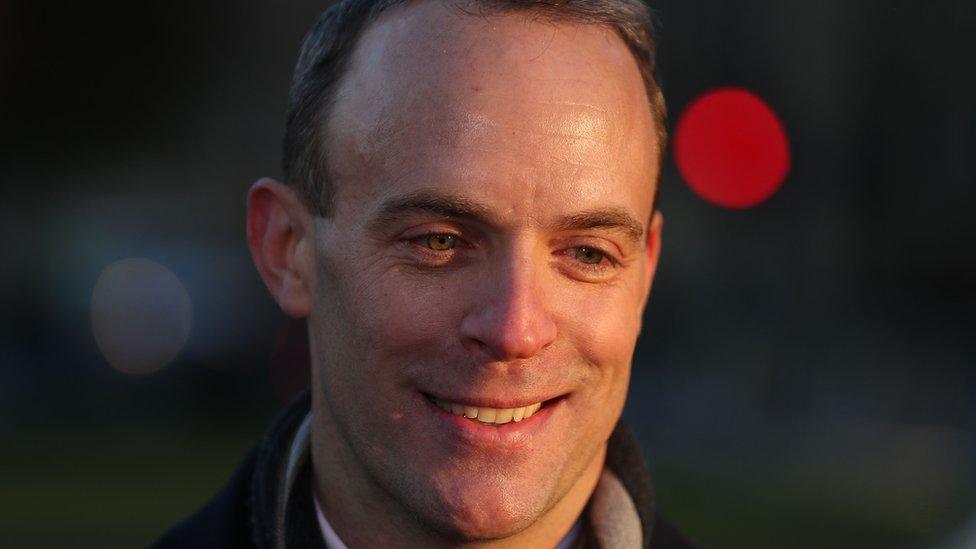
- Published30 January 2019
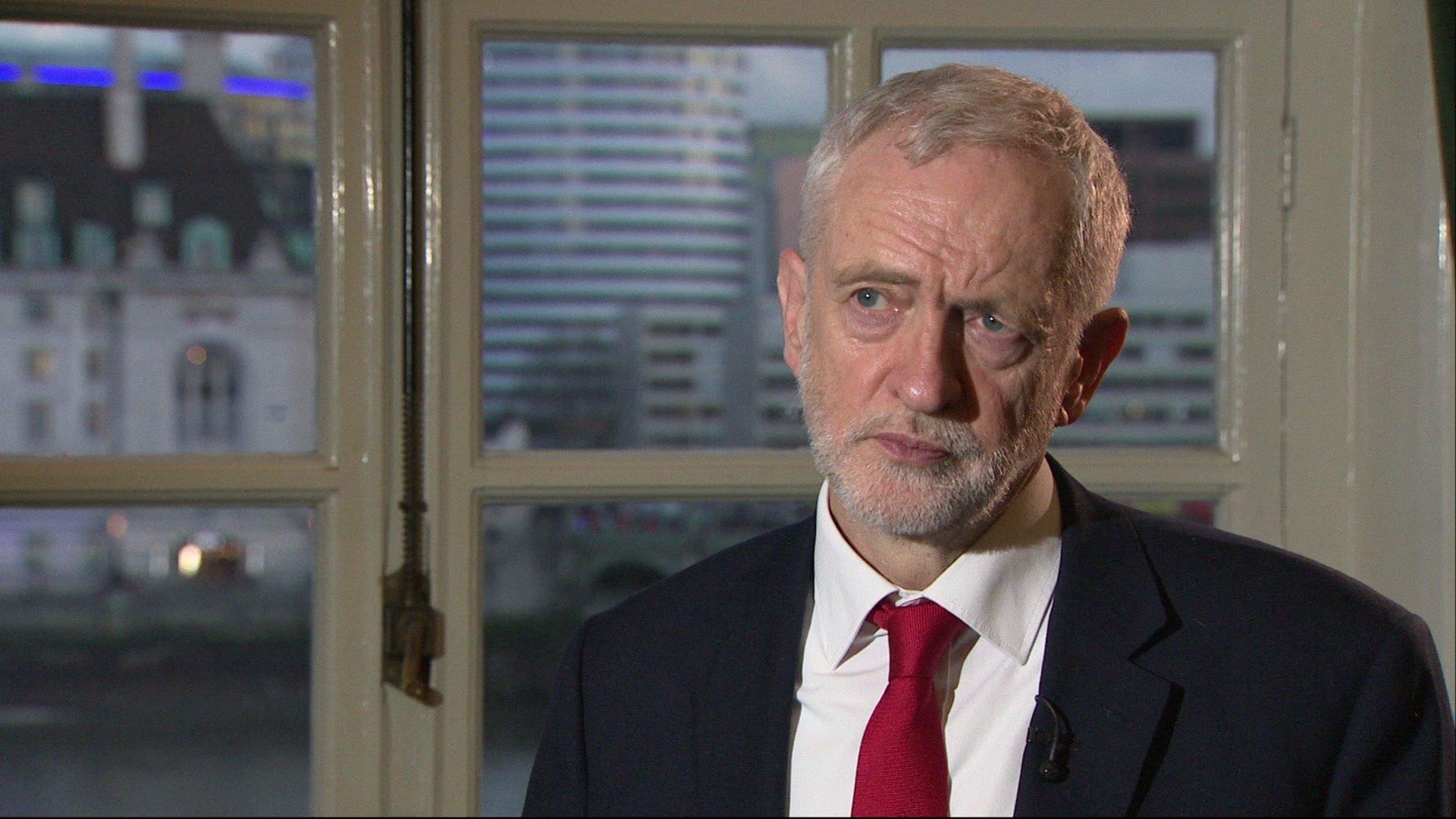
- Published30 July 2019

- Published15 January 2019
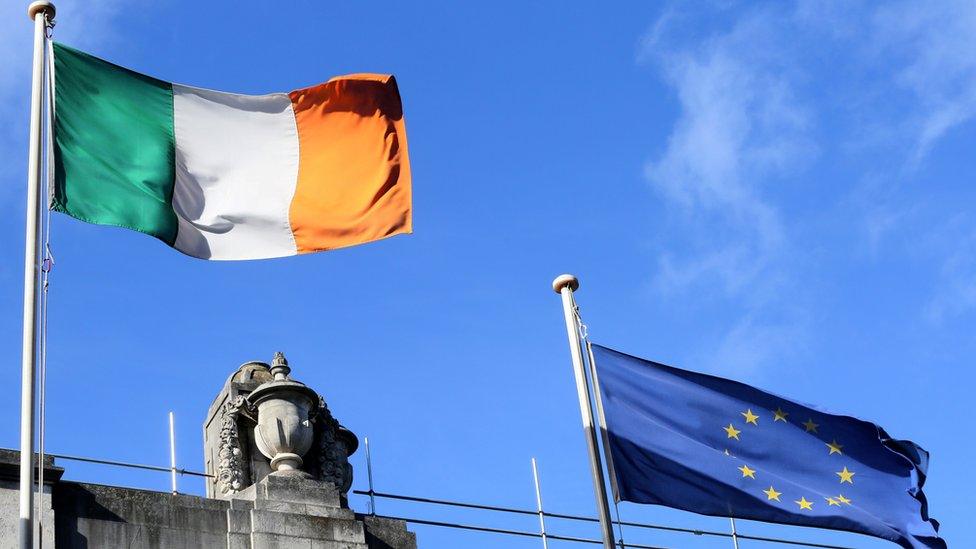
- Published16 October 2019

- Published13 December 2018
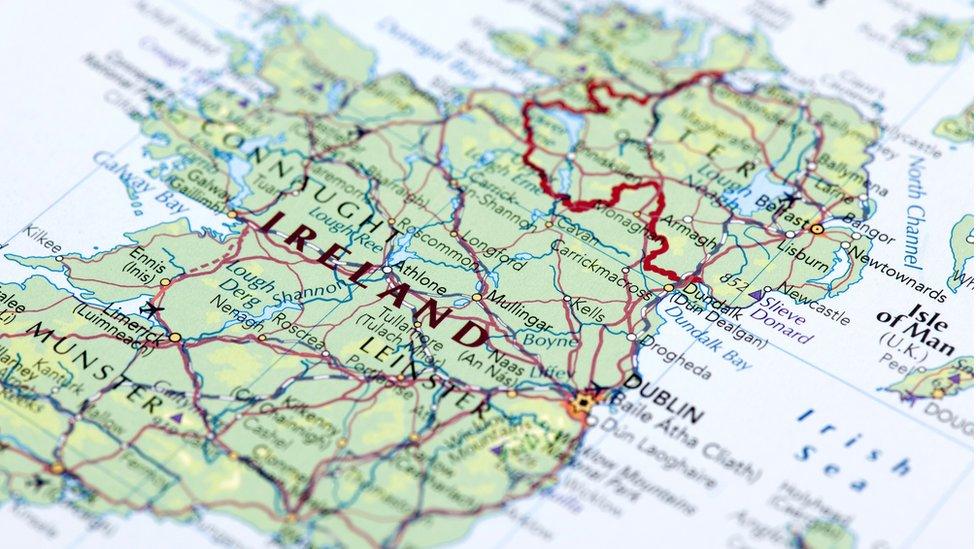
- Published27 January 2019
